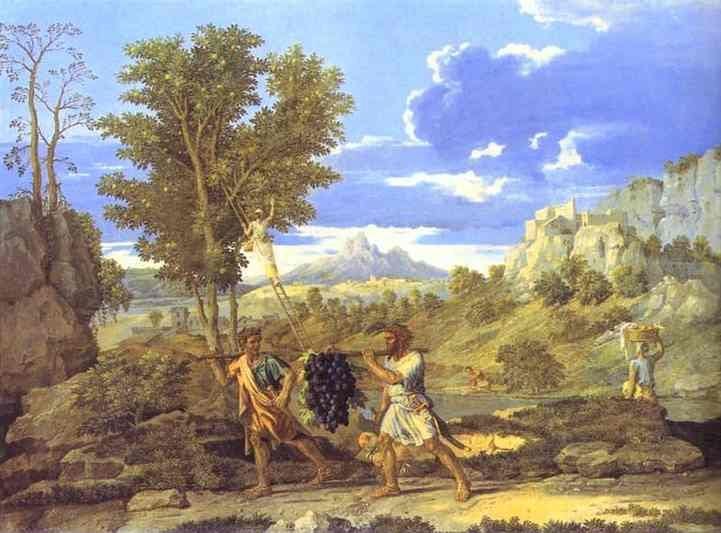On Being a Faithfulist

"The brave find a home in every land." Ovid
One week ago, I led the first meeting of The Academy's new Operational Team, comprised of equal parts administrative staff from our previous two schools.
I started with an odd question, particularly since the new school came into being just a few weeks ago: Are we in the glory days of The Academy? While I asked the question rhetorically, in the past five months since announcing our new school, I've come across four different perspectives - syndromes, really - out of which people usually answer:
Those with Founders Syndrome tend to think the question is a silly one even to ask; it's been downhill from the very beginning when things were small, simple, and good, and this is just a continuing stumble away from that path.
Those with Separatist Syndrome argue we were better off separated and should never have done this in the first place; after all, there's just no way things can possibly be as good together as the good that we once had apart.
Those with Fatalist Syndrome are not nearly as vocal, but for no real good reason, they genuinely believe the whole thing was over before it started; the end is near, they think, and it's just a matter of time.
Those with Futurist Syndrome come from the perspective that the past counts for little to nothing; the only real good that is going to come from any of this lies in the days to come.
Lest we think one of these is right, I would suggest none is; in fact, the Scriptures would seem to caution us against adopting any of these perspectives. Consider:
Ecclesiastes 7 pushes back on the Founders and the Separatists: "Say not, 'Why were the former days better than these?' For it is not from wisdom that you ask this" (verse 10). Things change: people are different, places are different, needs are different, culture is different, times are different. This doesn't mean that God has changed and is different as well, but the Scriptures remind us that, even in his constancy, he is always doing something new. Our role is to respond accordingly (see Psalm 98:1).
So much of the Bible argues against the Fatalist view that it seems silly to even list Scripture to make the point. Suffice it to say, the covenantal story of God's redemption of a fallen creation, renewed over and over again throughout history with a people so unworthy of such renewal, would seem to banish any kind of fatalist idea. There is no precedent or permission to be fatalistic because God is anything but.
Concerning the Futurist perspective, Proverbs 22:28 is succinct in its caution not to diminish the past ("Do not move the ancient landmark that your fathers have set"), nevermind the majority of the Old Testament's example after example of what happens when one generation forgets the former. And I'm not convinced that what many consider to be the most futurist book in the Bible (Revelation) didn't hold plenty of meaning at the time for John's audience suffering under the persecution of Domition during the late first century.
So what's an alternative to being Founders, Separatists, Fatalists, or Futurists? I'd like to suggest we become "Faithfulists" instead.
In thinking of an illustrative biblical character, it's hard to do better than Caleb as an example of a "Faithfulist." In the Old Testament story of the spies sent to explore the Promised Land, the Bible says that Caleb didn't choose to cower to the brutal realities of strong people present in the land in large and fortified cities (Numbers 13:28). Contrast his response with that of the spies, who quaked in fear, alarming the people and concluding, "We are not able to go up against the people, for they are stronger than we are” (Numbers 13:31), for it "is a land that devours its inhabitants, and all the people that we saw in it are of great height" (Numbers 13:32).
There were two extremes to the spies' disobedient response:
Reticent unbelief (extreme caution/fear) that initially paralyzed them (see Numbers 13:31-33)
Presumptuous unbelief (overconfidence/carelessness) with which they later tried to make up for their original fear (see Numbers 14:44)
The results of both did not turn out well. The dichotomy of decision merited vastly different outcomes - the death of an entire generation of people just outside the Promised Land and Caleb's (and Joshua's) entry into it. Caleb received what he had been promised because of his faith in Who had promised (see Joshua 14). He was brave, and as the Roman poet Ovid eloquently points out, "The brave find a home in every land."
Brave is what Faithfulists are; believe - in God and enough to do what he asks - is what Faithfulists do; a home in every land is just the beginning of the Faithfulist's reward.
(Art: The Grapes from the Promised Land, Nicolas Pussin, 1660-1664)



